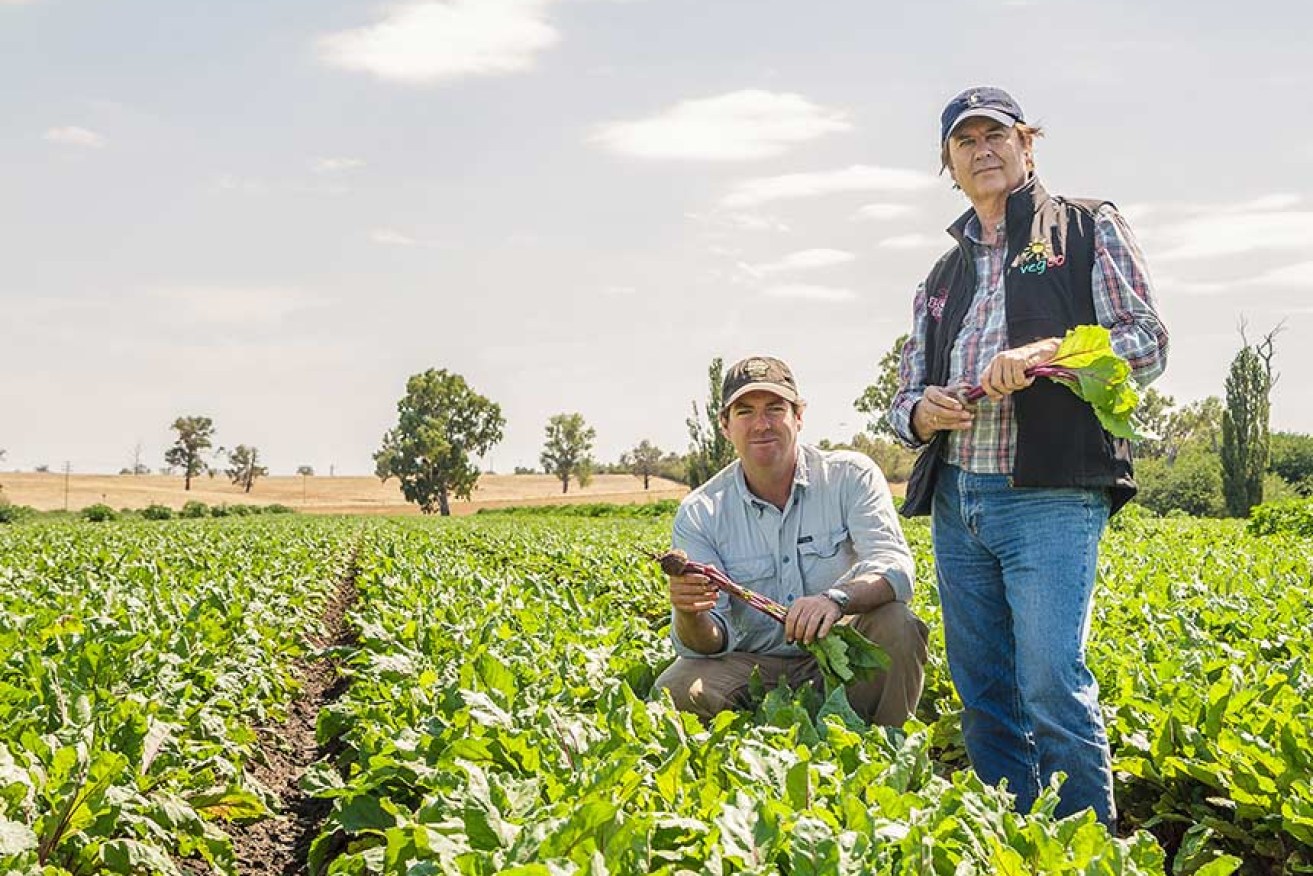Beeting a path to a high-growth new industry

AAP
Not long ago beetroot was something you used to eat as a kid and Dick Smith couldn’t give away, as cheap imports wiped out what was left of the local canning industry.
Now an Englishman, armed with some fancy foreign vege-growing technology, is bringing back the beet.
Beetroot is familiar to most Australians as a sliced, canned product with incredible spilling and staining abilities.
But Rob Munton, project manager for national fruit and vegetable grower OneHarvest, has introduced a new kind of beetroot product to the nation.
Love Beets are fresh-cooked baby beetroot in a vacuum-sealed pouch, and they are creating new customers and new jobs in an industry that, not long ago, was regarded as finished.
“It’s quite a different product to what’s been traditionally sold in the Australian market,” Mr Munton said.
“Beetroot is an iconic Australian flavour and the market has traditionally been with the beetroot in vinegar, sugar and basically cooked – stewed – in a can.
“With Love Beets, the beetroot is taken as a completely fresh baby beetroot that’s peeled, nothing added and then that’s placed into a vacuum-packed pouch and cooked in the pouch.”
It sounds simple but Love Beets are the product of a licensed field-to-supermarket process developed over 20 years in the United Kingdom.
England has a strong record in ready-to-eat fresh produce: Mr Munton, who is from an east coast farming family, worked for the producer that supplied the world’s first fresh-cut salads to retailer Marks & Spencer in the 1970s.
OneHarvest, one of Australia’s biggest fruit and vegetable growing companies, licensed the technology because of the depth of knowledge involved, ranging from growing the unusually small-sized beetroot to the type of plastic needed for the packs.
“It’s know-how and a thousand-and-one little bits of information which one could discover in time but rather than spend 20 years learning all the nuances we decided as a company to license the technology from day one,” Mr Munton said.
OneHarvest built a $3.8 million factory in Bairnsdale, Victoria, to pack Love Beets, aided by $150,000 from the Victorian government, and has created 30 jobs across that state and NSW .
The project was welcomed in an industry which suffered the closure of Australia’s last cannery, Windsor Farm, in 2013, and the exit of major processor Heinz in 2011 when it moved production from its Golden Circle cannery to New Zealand.
Millionaire entrepreneur Dick Smith famously bought and canned a crop of beetroot in 2012 but was forced into a public giveaway of the product after major retailers declined to stock them.
The beetroot farmer Mr Smith bought the crop from, Cowra-based Ed Fagan, is now growing for OneHarvest.
Mr Munton says he is not worried about entering an industry which has been under so much pressure in recent years.
“We think we’re coming in with a completely different product,” he said.
“It’s not soft and mushy and been sitting in a can for 12 months.
“We don’t see that we are competing at all with the canned beetroot.”
With a range of flavoured beetroot packs also on offer, Mr Munton hopes to attract new, younger buyers to beetroot.
All major supermarket chains will start selling Love Beets during early 2014 and Mr Munton says he hopes to create another 30 jobs and, if demand rises, build a second processing plant worth up to $2 million.








